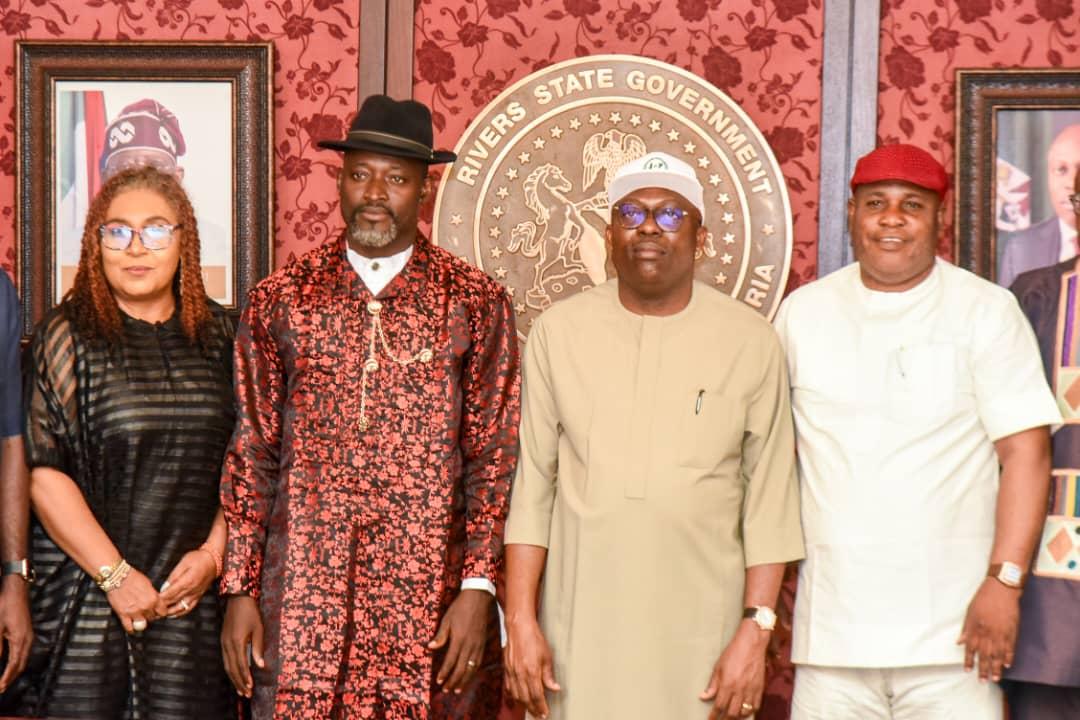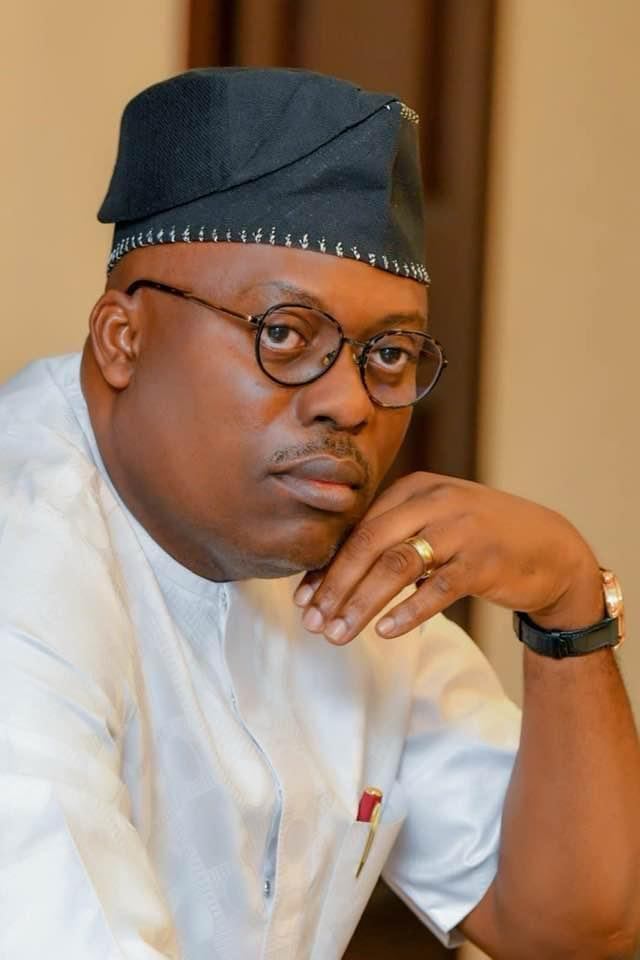Featured
Vocational Education And A Distressed Economy
The foundation of economic growth globally is technical/vocational education. Technical education is cardinal to the socio/economic development of any nation. Following this fact, stakeholders have emphasized the need to establish more well equipped technical schools in the country to boost development.
It was in realization of this importance that the federal government established the National Board for Technical Education (NBTE) in January 1977 in response to the acute shortage of technical manpower which was a major constraint towards the execution of the then 1975 – 1980 Third National Development Plan on Education.
The NBTE is saddled with overseeing the training of, and accreditation of academic programmes in all technical and vocational educational institutions. These institutions are to train middle-level technical manpower, and provide practical training.
Technical education is offered in institutions that are higher education in level, but non-university in status. Polytechnics, monotechnics (single discipline training), technical colleges, colleges of education, agriculture and health technology all provide higher technical education and training.
With the exception of colleges of education, which is overseen by the National Commission for Colleges of Education (NCCE), the rest of the technical higher institutions are coordinated by the NBTE.
As at October 2012, there were 110 approved tertiary technical institutions and 159 technical colleges under the purview of the NBTE, 74 polytechnics and 27 monotechnic colleges.
Others include, 36 colleges of agriculture, 50 colleges of health technology, 16 other specialised institutions, 71 vocational enterprise institutions (VEIs) and innovative enterprise institutions (IEIs), making a total of 543 institutions.
Analysts say this number is grossly inadequate given the unprecedented level of demand for technical education in the country. These institutions can only accommodate a fraction of the youths seeking admission because of inadequate space.
Records from the Joint Admissions and Matriculation Board (JAMB) indicated that out of 5.4 million applicants for admission into polytechnics between 2006 and 2012, only 1.2 million of them could gain admission, representing 21.5 percent.
Clearly, the inadequate number of vocational institutions has led to the arbitrary abuse of Carrying Capacity of Nigeria Tertiary Institutions. Carrying Capacity of institutions refers to the maximum number of students an institution can sustain for quality education based on human and material resources.
In other words, Carrying Capacity stipulates that the number of students to be admitted into programmes must be based on available facilities such as adequate lecture rooms, well equipped libraries, staff/student ratio, laboratories and equipment, among others.
But it has been observed that many technical institutions don’t comply with the rules. They indulge in borrowing lecturers and staff as well as facilities from other institutions to conceal their defects. Some stakeholders have frowned at the practice and describe it as improper.
An educationist and former principal, Mr. Ignatius Lawson, says such practice is immoral and fraudulent which ought to take the offenders to prison. According to him, schools should adhere to international best practice or be shut.
“International best practice provides for 30 students per class in technical and vocational and 40 for management-based programmes, but some institutions advocate 70, others even more than 100.
“Best practice also pegs staff/student ratio at 1:15 for technology-based programmes and 1:20 for non-technology based. This policy is aimed at ensuring quality of instruction and schools must not exceed their capacity or compromise minimum standard, “ said Lawson.
Similarly, a Port Harcourt-based lecturer, who chose to be anonymous, blamed the deficit in institutions and learning infrastructure in the country on poor funding and lack of attention to technical education.
She said infrastructure such as access to internet, library, textbooks, equipment, laboratories and classrooms are lacking and therefore result in the deterioration of technical education and learning.
“Technical and vocational education is all about skill acquisition and competence-based. Facilities that will enhance skill acquisition are important to the teaching and learning process in technical and vocational education.
“Unfortunately, these facilities like workshops, laboratories, studies and field facilities are lacking for the various programmes in conformity with the minimum standards prescribed in the curriculum,” she said.
Sharing similar sentiments, a legal practitioner, Mr. Biobele Fyneface, asked the government to expand access to technical and vocational education in line with equity and international best practice.
He added that although at this critical moment, the country required more technically skilled manpower in the economy, students’ enrollment into technically-related programmes cannot be increased arbitrarily without corresponding increase in the resources required to sustain the additional intakes.
A nursery/primary school proprietress, Mrs Elem Ochonma, observed that some important factors must be considered in determining the capacity for an academic programme without compromising quality.
According to her, the factors include the target population of prospective students to be trained, the human and material resources available for training and the technology and methodology to be deployed in carrying out the training.
She posited the need for quality assurance mechanism to ensure quality teaching and said the federal government should initiate steps that would enhance the standards of technical and vocational education in the country.
A civil servant in the Rivers State Ministry of Works, who asked to remain anonymous, said the number of technical schools in the country was inadequate and asked the government to establish more functional ones to boost access to skill acquisition. He said if technical institutions in the country were many, only few persons would like to go to the universities.
“I think we have a situation in this country where we focus too much on the liberal arts and sciences. Everyone goes to the university and then have no job on graduation. We need a skilled technical labour force in every state; almost as many technical colleges as the universities we have.
“You go to restaurants and hotels, and you don’t get good services because people don’t learn it. This is because we don’t have enough vocational institutions where people get proper training. If there were as many technical and vocational institutions as there were universities in the country, not everyone would like to go to the university.
“Therefore, there is need to elevate the standard of technical and vocational education so that the people can tap from the gains that accrue from it. This way we will reduce congestion in the universities and strengthen the service aspect of our industry,” he concluded.
In all, stakeholders believe that enterprise development, acquired through vocational education, is essential for job creation and poverty reduction.
Arnold Alalibo
Featured
Rivers’ll Be Known For Peace, Not Crisis -Fubara

Rivers State Governor, Sir Siminalayi Fubara, has said that peace has prevailed because he draws strength from God to resist insults and tantrums thrown at him while frustrating attempts by some disgruntled persons who wanted to plunge the State into unending crisis.
The Governor also said that because he has anchored his Government on promoting peace, the enabling atmosphere has been provided for investments and sustainable development to flourish.
Governor Fubara made the assertion when he received a delegation of members of the Bishops and Gospel Ministers’ Association International Incorporated, Rivers State Chapter, at Government House in Port Harcourt, yesterday.
Represented by the Head of Rivers State Civil Service, Dr George Nwaeke, Governor Fubara said while most people took his meekness for weakness, his stance on peace has unarguably enhanced harmonious atmosphere of concord as residents sleep with their two eyes closed, and investors and shareholders are happy with the returns on investment.
He said, “Before, what they hear of Rivers State is that they are fighting, and some genuine investors will not come. Some people even ask you: How are you coping in Rivers State?
“But now”, he asserted: “The Governor has brought about a lot of changes in the State. One of the most important things is that he has changed the negative narrative. It is no longer Rivers of blood. It is now Rivers of peace.
“We are enjoying our lives here. Why? Because there is a change in the narrative. We have peace. The Governor is, as much as possible, absorbing any level of insult at him only for one purpose: that Rivers State may have peace; that we may grow; that this state will experience genuine development.”
Governor Fubara urged them, as members of the Christian family in the State, to continue to pray for the State and the Government so that the enemies of the State will be put to greater shame.
“This peace is what I want you to embrace. Go and continue to pray, because when the sower of the seed went and sowed, the enemy went in the night and sowed tares inside there. But the Governor is sowing peace.
“When I listened to the leader of the team, His Grace Eddy Ogbonda, he said you came all the way from Eleme Junction, and stopped at major junctions, and you uttered prayers for the peace of Rivers State.”
He also said: “I, hereby want to thank you for identifying with the Governor at a time like this. At a time when it looks as if someone wants the Governor’s peace posture misunderstood as weakness.
“When someone has the strength to fight back, but refuses to fight back. That is a bigger strength; that power of restrain does not just come, it can only come from God.
“You cannot give peace, if you do not have peace within you. The Governor is not interested in any form of trouble or violence. What he is interested in is known, and it is: let there be peace in Rivers State,” he said.
In his address, leader of the group, Archbishop Eddy Ogbonda, said they had observed a week-long intensive prayers that culminated into a peace rally, which brought them to Government House, and assured the Governor that God will continue to give him victory over his adversaries while preserving Rivers State.
“It is Rivers State Prophetic Prayer Convocation and Rally 2024 with the theme: ‘Peace be still’. Of a truth, everyone of us understands that we live in a time when we need peace much more than any other thing.
“Rivers State needs peace. Everyone as individuals need peace. The country needs peace, and the world at large needs peace. So, we are here to do a peace march. We pray that God will command His peace to reign in Rivers State,” he said.
Featured
Hoteliers, School Owners Charging In Dollars Risk Arrest -EFCC

The Economic and Financial Crimes Commission (EFCC) has stated that hotels, schools, and other establishments that accept payments in dollars from their customers are at risk of facing arrest.
The Chairman of EFCC, Ola Olukoyede, said this in the agency’s publication called EFCC Alert on Monday, adding that action would be taken against individuals involved in the dollarisation of the economy.
According to him, the exception is if foreigners come in to transact business and the only means of transacting is their credit card and dollar but to charge local customers in dollars or other foreign currencies would no longer be allowed.
He said charging local activities and customers in dollars is against Nigeria’s constitution.
The EFCC chairman said, “Schools that charge Nigerians in dollar, supermarkets that trade in dollar, estate developers that sell their property in dollar, hotels that are invoicing in dollar, we are coming after you and we have made arrests in that area.
“Yes, if foreigners are coming in and the only means of transacting is their credit card, and dollar, why not? You will get that.
“But document it properly as against selling things within the system, local economy and you will be using dollar as the medium of exchange, it is illegal.
“Our law does not allow for that. And we have also affected some arrests.”
Featured
Eid-El-Fitr: Fubara Felicitates Muslims, Calls For Unity, Tolerance

Rivers State Governor, Sir Siminalayi Fubara, has enjoined Muslim faithful to remain steadfast to the lessons learnt during the holy month of Ramadan.
Governor Fubara stated this in his message of felicitations to Muslims as they celebrate the 2024 Eid-el-Fitr Sallah, which marks the end of the one-month Ramadan fasting.
The Governor emphasised the importance for Muslims to also uphold the tenets of Islam by exhibiting the fear of God and showing piety in their daily work.
Governor Fubara said, “We must all continue in the good attributes imbibed during the holy month of Ramadan as directed by God through His Prophet, so as to ensure peace, unity and harmony in the society for a better future.”
While praying that the essence of the festival offers them happiness, peace and prosperity in all aspects of life, Governor Fubara said he recognises and appreciates the critical role that the Muslim community continues to play in the development of Rivers State, and indeed, Nigeria at large.
Governor Fubara charged them to remain unwavering and steadfast in their commitment and positive contributions to advance the development of the State and the country.
“I enjoin you all in the State to remain calm, be patient and continue to do what is right,” the Governor added.
He wished the Muslim faithful in the State and across the country a happy Eid-el-Fitr celebration.
-

 Opinion2 days ago
Opinion2 days agoPoverty: Manipulative Tool Of Oppressive Ruling Class
-

 Niger Delta2 days ago
Niger Delta2 days agoA’Ibom Targets 600,000 Households For Intervention Programmes
-

 Politics2 days ago
Politics2 days agoRivers Lawmakers’ Defection, ‘Monkey Politics’-CSO
-

 News2 days ago
News2 days agoTinubu Directs Inclusion Of NOUN Graduates In NYSC Scheme, Law School
-
SMEs2 days ago
Customs Bolsters Collaboration With Benin Counterpart
-

 Opinion2 days ago
Opinion2 days agoFolly Of Leaping Before Looking
-

 Niger Delta2 days ago
Niger Delta2 days agoTraditional Rulers Council Honours Two Commissioners
-

 Sports2 days ago
Sports2 days agoB’Ball: NBA Stars Dominate US Olympic Team

